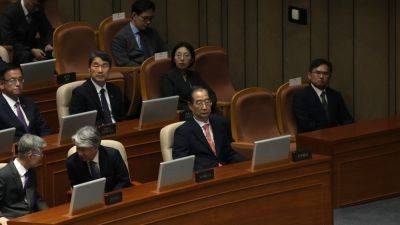Time for South Korea to go nuclear
South Korea, despite having the technical prowess to develop nuclear weapons, has so far honored its commitments under the Nuclear Non-Proliferation Treaty (NPT), relying heavily on its alliance with the United States for security. However, as North Korea continues to advance its nuclear capabilities, confidence in the US security umbrella is waning.
There is growing fear that the United States might hesitate to retaliate in the event of a North Korean nuclear strike, leading South Koreans to explore alternative security options.
The limitations of the NPT in effectively curbing nuclear proliferation, combined with the fragility of the US-South Korea alliance – strained by trade disputes and American threats to reduce military support – are further intensifying calls for South Korea to reconsider its non-nuclear stance.
The North Korea factor
The most immediate and compelling justification for South Korea to pursue its own nuclear program is the existential threat posed by North Korea.
Despite numerous diplomatic efforts, including summits and negotiations, Pyongyang has continued to expand its nuclear arsenal. The regime’s growing stockpile, coupled with its development of advanced delivery systems like intercontinental ballistic missiles (ICBMs), poses a direct and significant threat not only to South Korea but also to the broader region and even the United States.
Although the US has long provided a nuclear umbrella to protect South Korea, relying solely on external guarantees in an increasingly uncertain geopolitical environment is becoming riskier. The US itself faces complex security challenges globally, and there are no assurances that future administrations will maintain the same level of commitment to South







